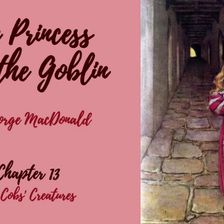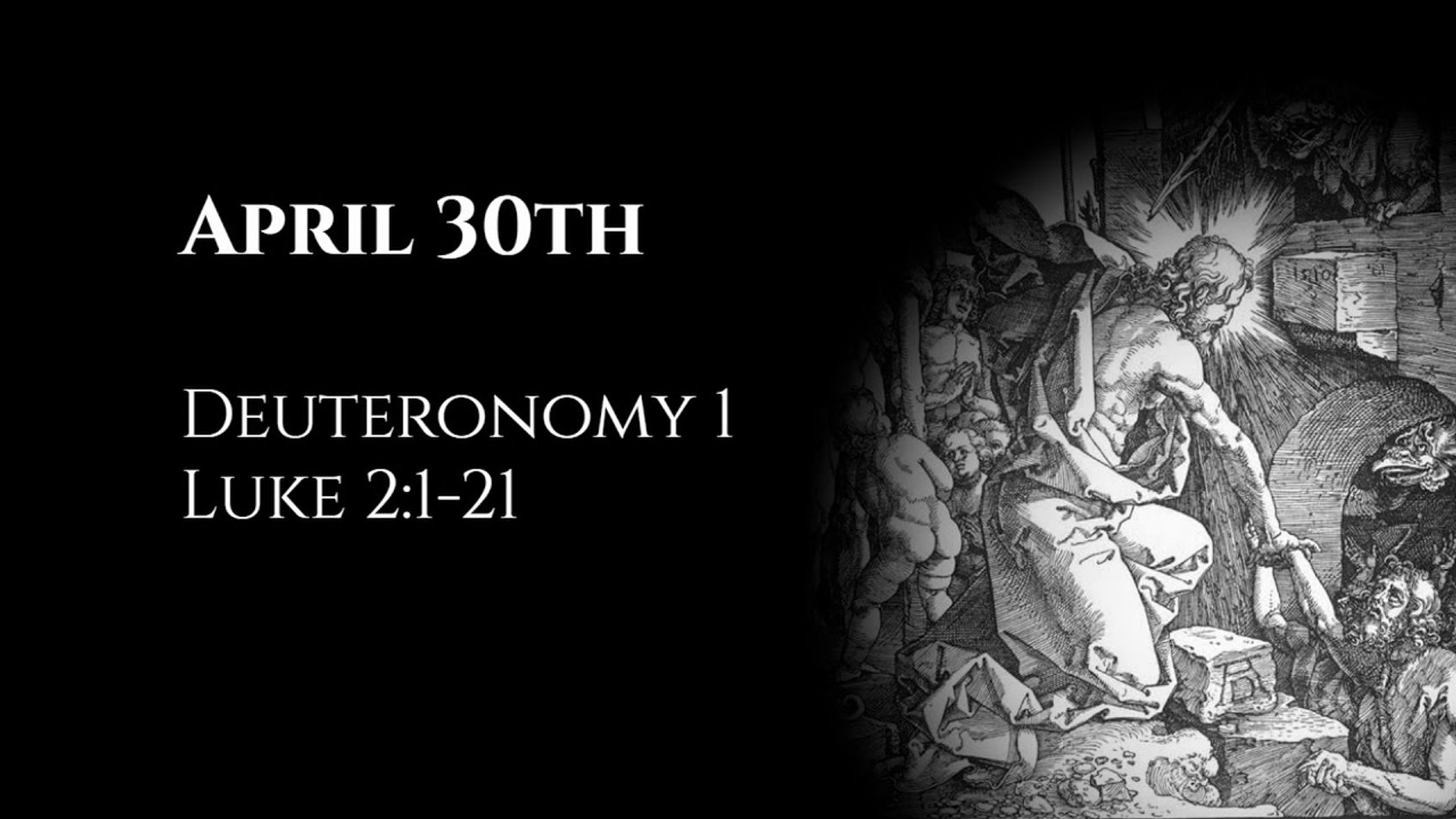April 30th: Deuteronomy 1 & Luke 2:1-21

Moses recounts Israel's rebellion. The birth of Jesus and the angels appearing to the shepherds.
Some passages referenced:
Deuteronomy 26:16-19, 27:9 (Deuteronomy as a formal renewal of the covenant); Deuteronomy 1:1-5 (Preamble); Deuteronomy 1:6—4:49 (Historical Prologue); Deuteronomy 5—11 (General Stipulations); Deuteronomy 12—26 (Specific Stipulations); Deuteronomy 27—28 (Blessings and Curses); Deuteronomy 30:19, 31:19, 32:1-43 (Witnesses).
Acts 5:37 (Judas the Galilean and the days of the census); Genesis 46:32-34, 47:3 (Hebrews distinguished from the Egyptians as a shepherding people); Psalm 23, Jeremiah 3:15, 23:1-4, Ezekiel 34 (shepherding imagery); Isaiah 63:11-13 (Moses the shepherd leading Israel like a flock); Exodus 3:12 (the sign given to Moses); Ezekiel 34:23, Micah 5:2-5 (the promise of the Davidic shepherd); Luke 23:53 (wrapped in linen garments and laid in the tomb); 24:4 (dazzling appearance of angels after the resurrection); Luke 24:12 (the sign of the unwrapped linen garments and the empty tomb, with marvelling in response); Luke 24:52-53 (the apostles’ respond with worship).
Reflections upon the readings from the ACNA Book of Common Prayer (http://bcp2019.anglicanchurch.net/).
If you have enjoyed my output, please tell your friends. If you are interested in supporting my videos and podcasts and my research more generally, please consider supporting my work on Patreon (https://www.patreon.com/zugzwanged), using my PayPal account (https://bit.ly/2RLaUcB), or by buying books for my research on Amazon (https://www.amazon.co.uk/hz/wishlist/ls/36WVSWCK4X33O?ref_=wl_share).
The audio of all of my videos is available on my Soundcloud account: https://soundcloud.com/alastairadversaria. You can also listen to the audio of these episodes on iTunes: https://itunes.apple.com/gb/podcast/alastairs-adversaria/id1416351035?mt=2.
More From Alastair Roberts






More on OpenTheo















